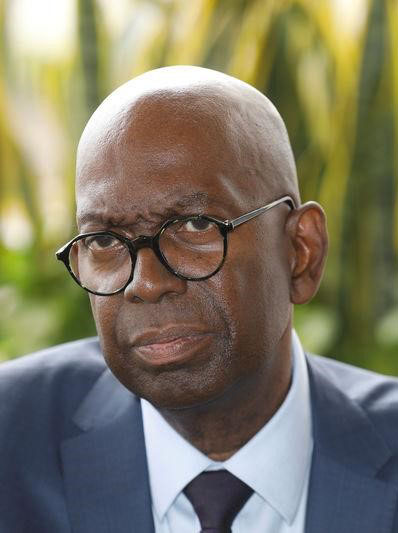NAIROBI (Reuters) – When Bob Collymore, the CEO of Kenya’s Safaricom, wanted to know about his poorest customers, he would catch a local bus or walk around Kenya’s slums with a prominent anti-corruption activist.
The visits, related to Reuters after Collymore’s death from cancer yesterday, epitomised the popular touch that helped make him a household name as he led East Africa’s most profitable company.
Affectionately referred to as “Bob” by employees, customers and news anchors, the 61-year-old’s affable manner and staunch defence of his company in the face of internal corruption and external criticism from regulators made him a colourful character in corporate Kenya’s forest of dark suits.
“You’ve all experienced Bob, his largeness, his enthusiasm, his greatness, his affinity with people and I think that’s what has driven this company and what Bob has done for this company,” Michael Joseph, his predecessor as CEO and a member of the board, said in a news conference on Monday.
Collymore became Safaricom’s chief executive officer in 2010 at the height of a price war sparked by its arch-rival, Airtel Kenya. Collymore held the line, refusing to slash prices in his drive to provide better services. Subscribers stayed.
He fired corrupt internal procurement officers before seeing off two attempts by the state regulator to break up the company due to its dominant size, arguing poor customers relied on the network for banking services via M-Pesa, the money service that helped propel Safaricom to its status as the first multi billion-dollar-a-year revenue company on the Nairobi bourse. It’s now valued at $11 billion.
Boniface Mwangi, a prominent anti-corruption activist, said he had accompanied Collymore when he defied company security to walk around the slums to meet Safaricom’s poorest users.
“The company was afraid that if he took a walk he might be in trouble,” Mwangi told Reuters. “Kenyan CEOs don’t hang out in the hood or go to the consumers. Kenyan CEOs wait for market research reports.”
Staff recalled a boss who encouraged them to unplug from work devices at night and spend time with their families.
“His presence here was of great benefit to us, we all are the better for it,” said the chairman of the company’s board, Nicholas Ng’ang’a.
A Briton who was born in British Guiana, Collymore had worked for retailer Dixons, mobile operator O2 and BT in Britain before joining Vodafone. He launched Vodafone’s 3G strategy in the Japanese business market and became head of corporate affairs in South Africa before his move to head Safaricom.
Outside the boardroom, Collymore was a keen piano and saxophone player and a frequent presence on Nairobi’s music scene. He helped raise funds for drought victims in 2011 and started big-name jazz concerts sponsored by Safaricom. He also appeared in music videos by local musicians.
“He grew up poor so he had a soft spot for the downtrodden and the vulnerable,” friend Jeff Koinange, a prominent broadcaster, wrote to Reuters. “He died as he lived … with a smile on his face.”
He is survived by his wife and four children.










